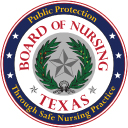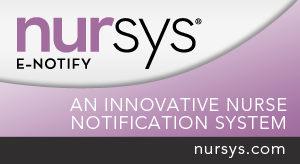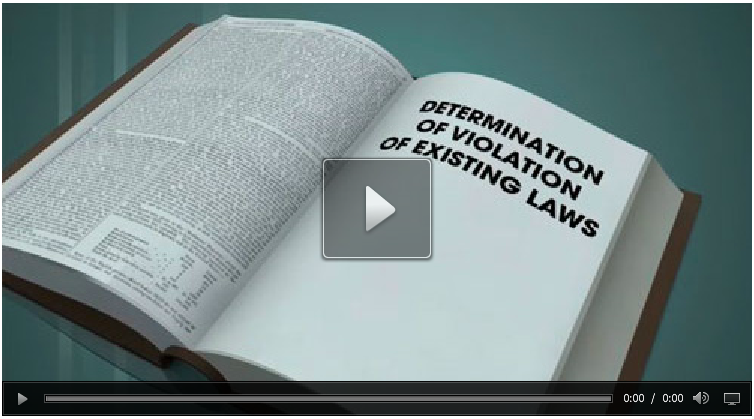
FAQs Relating to Nursing Practice in Disaster Areas
In a disaster, is there an expansion to the registered nurse (RN) or licensed vocational nurse (LVN) scope of practice?
- The RN and LVN scope of practice remains unchanged in a disaster. The Nursing Practice Act (NPA) describes a defined limit to nursing practice, as nursing practice does not include acts of medical diagnosis or the prescription of therapeutic or corrective measures” [NPA 301.002(2)&(5)]. The practice of nursing requires the acts/procedures being performed be within the scope of that particular nurses’ practice and that appropriate orders be in place for acts that go beyond the practice of nursing.
- The Board of nursing (Board or BON) website contains guidance in the determination of what is within an individual nurse’s scope of practice. Board Staff recommend review of the following documents:
-
- Board Rule 217.11—Standards of Nursing Practice,
- Position Statement 15.27—The Licensed Vocational Nurse Scope of Practice,
- Position statement 15.28--- The Registered Nurse Scope of Practice
- Practice- Vocational Nurse Practice
- Practice- Registered Nurse Practice
- FAQs LVNs “Supervision of Practice ”and Regarding Position Statements 15.27, The LVN Scope of Practice, and 15.28, The RN Scope of Practice.
During a disaster, do I still need physician orders to provide medications to patients?
- The Nursing Practice Act (NPA) describes a defined limit to nursing practice, as nursing practice does not include acts of medical diagnosis or the prescription of therapeutic or corrective measures” [NPA 301.002(2)&(5)].Both LVNs and RNs must have a valid order for “the administration of a medication or treatment as ordered by a physician, podiatrist, or dentist” [NPA 301.002(2)(C)].
-
- Board Position Statement also clarify:
- In a disaster, nurses may be utilizing delegation orders from a physician to provide care. Position Statement 15.5 discusses nurses with the responsibility for initiating standing orders. This position statement outlines the differences between:
-
- Standing delegation orders -written instructions, orders, or procedures that provide the authority for a plan to be implemented for patients presenting prior to being examined or evaluated by a physician,
- Standing medical orders - written instructions, orders or procedures prepared by a physician or approved by the medical staff of an institution for patients that have been evaluated or examined by a physician, and
- Protocols- narrowly defined by Texas Medical Board (TMB) and applicable only to Advanced Practice Registered Nurses (APRNs) and Physician Assistants (PAs)
- Board staff suggest review of this position statement as a resource for understanding the important elements of standing orders. Carrying out some physician’s orders may constitute the practice of nursing, but others may be considered delegated medical acts. Board Position Statement 15.11—Delegated Medical Acts—is also a valuable resource for nurses. Delegated medical acts do not diminish the responsibility in any way of the nurse to adhere to the Board's Standards of Nursing Practice, Board Rule 217.11.
NURSING WORKFORCE ISSUES DURING A DISASTER:
- During times of disaster, there is an unexpected increased need for health care personnel. An emergency, disaster, or unforeseen event constitutes an exception to the prohibition of mandatory overtime and is detailed in the Health and Safety Code-Licensing of Health Facilities: Chapter 258 Mandatory Overtime for Nurses Prohibited. Board rule 217.11(1)(A) requires nurses to know and conform to the Texas Nursing Practice Act and the Board’s rules and regulations as well as all federal, state, or local laws, rules or regulations affecting the nurse’s current area of nursing practice.
-
No. While there are standards of practice for all nurses set forth in Board rule 217.11 that speak to a nurse's duty to
implement infection control measures, Board rules do not outline the specific
measures to be taken in a given situation, including a disaster setting.
Relevant regulations include Board rule 217.11 (1) (B) that requires that all nurses implement measures to promote a safe environment for clients and others and 217.11 (1)(O) that requires all nurses to implement measures to prevent exposure to infectious pathogens and communicable conditions. Nurses in need of specific guidance for appropriate infection control measures are encouraged to seek current information from the Centers for Disease Control and Prevention (CDC), and the Texas Department of State Health Services(DSHS). Nurses may not refuse a patient care assignment if the organization is following current recommended CDC or DSHS guidelines. - A nurse may have to choose between the duty to provide safe patient care and protecting the nurse's own life during an emergency, including but not limited to disasters. These situations are challenging for all nurses and their employers, therefore the Board recommends policies and procedures be developed, and periodically reviewed to provide clear guidance and direction to nurses in order for patients to receive safe and effective care.
- All nurses, regardless of practice setting or position title/role, are required to adhere to the NPA and Board Rules. There is also no routine answer to the question, "When does the nurse's duty to a patient begin?" The nurse's duty is not defined by any single event such as clocking in or taking report. From a BON standpoint, the focus for disciplinary sanctions is on the relationship and responsibility of the nurse to the patient, not to the employer or employment setting. Position Statement 15.6 Board Rules Associated with Alleged Patient "Abandonment" provides additional guidance on this topic.
- The Board believes nurses should be vigilant and exercise sound professional judgment when accepting assignments that may be requested by employers who need nurses to fill vacant shifts for licensed nursing staff, or other staffing-related situations. Clear communication between staff and supervisors is essential to arrive at solutions that best focus on patient care needs without compromising either patient safety or a nurse’s license.
- A nurse must consider Board Rule 217.11—Standards of Nursing Practice Sections (1)(B) & (1)(T), that state a nurse must accept only those assignments that take into consideration client safety and that are commensurate with the nurse’s educational preparation, experience, knowledge and physical and emotional ability.
- If a nurse feels he/she is being asked to accept an assignment that would potentially cause the nurse to violate his/her duty to a patient, the nurse may be able to invoke “safe harbor,” depending on whether or not the nurse’s employer meets requirements that would make it mandatory for the employer to have a nursing peer review plan in place. This is established in the NPA, Chapter 303, Peer Review, and in Board Rule 217.20, Safe Harbor Nursing Peer Review and Whistleblower Protections. Safe Harbor has two effects related to the nurse’s license:
- It is a means by which a nurse can request a nursing peer review committee determination of a specific situation in relation to the nurse’s duty to a patient; and
- Affords a nurse immunity from Board action against the nurse’s license if the nurse invokes safe harbor in accordance with Board Rule 217.20. For the nurse to activate this immunity status, the nurse must notify the assigning supervisor prior to engaging in the conduct or assignment that he/she is invoking safe harbor, and the nurse, or nurse supervisor in certain circumstances, must document the required information as specified in Board Rule 217.20(d). Please see the Safe Harbor Nursing Peer Review FAQs also available on the BON website.
- A nurse may orally invoke safe harbor due to immediate patient care needs by notifying the nurse's supervisor of the request. The supervisor must then document all the requirements specified in Board Rule 217.20(d)(3)the Safe Harbor Quick Request. A detailed written account of the safe harbor request that meets the requirements of the Comprehensive Written Request for Safe Harbor Nursing Peer Review must be completed before leaving the work setting at the end of the work period [Board Rule 217.20(d)(4)].
- Patients are better off with the nurse than without the nurse in the vast majority of cases, and this is especially true in disasters. However, Board Rule 217.20(g) clarifies that a nurse may accept the assignment when safe harbor has been invoked and is pending nursing peer review determination unless the requested assignment or conduct is one that:
-
- constitutes a criminal act;
- constitutes unprofessional conduct; or
- the nurse lacks the basic knowledge, skills, and abilities necessary to deliver nursing care that is safe and that meets the minimum standards of care to such an extent that accepting the assignment would expose one or more patients to an unjustifiable risk of harm.
- During a disaster, staffing is typically a challenge. A request to accept an assignment when a nurse believes the nurse staffing levels are unsafe would be conduct a nurse normally would engage in pending nursing peer review’s determination since the supervisor normally would have some reasonable legal or factual basis to support her/his belief that the requested assignment does not violate a nurse’s duty to a patient, even if the nursing peer review committee ultimately determines otherwise.
a. During a disaster, can I be required to work overtime?
b. Do Board Rules set forth detailed guidance for appropriate use of personal protective equipment?
c. Is it patient abandonment if I call in sick during a disaster?
d. What do I do if my employer requires me to stay for a double shift during a disaster and I am already physically exhausted? I am concerned I cannot give proper care and attention to my patients due to fatigue.
e. We cannot get enough staff and I feel my patient load is unsafe. If I invoke Safe Harbor, can I just refuse the assignment?
What do I do if my employer asks me to transition into an unfamiliar role due to a state of disaster?
-
There may be a variety of reasons that may lead an employer to request an RN or LVN practicing in Texas to change their primary area of practice during a disaster. Transitioning from one area of practice to another, especially an area the RN or LVN is unfamiliar with, may affect the nurse's ability to provide safe and effective nursing care that complies with the Nursing Practice Act and Board Rules .
- Board Staff recommend review of Board Rule 217.11 (Standards of Nursing Practice) taking into consideration certain portions of the rule that apply to this situation, including all nurses must:
-
- (1)(B): Implement measures to promote a safe environment for clients and others;
- (1)(G): Obtain instruction and supervision as necessary when implementing nursing procedures or practices;
- (1)(H): Make a reasonable effort to obtain orientation/training for competency when encountering new equipment and technology or unfamiliar care situations;
- (1)(T): Accept only those nursing assignments that take into consideration client safety and that are commensurate with the nurse's educational preparation, experience, knowledge, and physical and emotional ability.
- There is a Practice-Guideline that provides more information for consideration: Guidelines for Transitioning of the Experienced Nurse back into Clinical Practice or into a New Practice Setting
During this disaster I am being asked to use telehealth for services I previously provided face-to-face. What guidence does the Board of Nursing (or BON) offer?
-
The determination of whether or not nursing care can be performed via telehealth should be made with the following considerations:
- the ability of the nurse to uphold the Standards of Nursing Practice outlined in Board Rule 217.11 which applies to nursing practice in any setting, and
- ensuring the client’s health care needs are met.
- The Board’s most helpful resource is a Frequently Asked Questions Relating to Telehealth. Telenursing involves nursing practice via any electronic means such as telephone, satellite, or computer. Examples of telenursing practice may include (but are not limited to) teaching, consulting, triaging, advising, or providing direct services. All of these actions constitute the practice of nursing, even when there is no face-to-face or physical contact with a person or patient. If a job description requires a person to hold a valid nursing license, then the job duties therein involve the practice of nursing. This means that the nurse must comply with the Texas Nursing Practice Act (NPA) and Board Rules in the exercise of his/her practice of nursing.
- Board Rule 217.11(1)(A) requires nurses to know and conform to the NPA and Board’s rules and regulations as well as all federal, state, or local laws, rules or regulations affecting the nurse’s current area of nursing practice. As such, nurses are encouraged to consult with (but are not limited to) the following resources for additional guidance:
- Texas Health and Human Services- to make the determination of any additional rules or regulations that may apply to the practice setting transitioning to telehealth (e.g. billing for services),
- The Office for Civil Rights (OCR) at the Department of Health and Human Services (HHS)- has released a notification of enforcement discretion for telehealth remote communications during COVID-19 nationwide public health emergency (see inserted hyperlink),
- Texas Department of State Health Services and Centers for Disease Control- for the latest infection control measures, and
-
Centers for Medicare & Medicaid Services (CMS)- for additional telehealth guidance such as a toolkit to help providers stay informed on the CMS and HHS materials available on the COVID-19 pandemic.
Tips on Cardiopulmonary Resuscitation (CPR) certification during State of Disaster
Board staff have received inquiries during this State of Disaster from nurses who are concerned they will not be in compliance with a Board rule or regulation if they do not have a current CPR certification. The Texas Board of Nursing (BON or Board) licenses nurses and regulates nurses in the State; the Board does not have purview over practice areas, facility operations, or most facility policies and procedures. Nursing Practice Act and Board rules do not have a requirement for specific CPR training and/or certification. Board Rule 217.11 (Standards of Nursing Practice) outlines the minimum standards for safe nursing practice at all levels of licensure. Although a comprehensive review of this rule is recommended, below are the parts of the rule that apply to a Texas nurse’s duty to initiate CPR and obtain training/certification:- (1)(B) implement measures to promote a safe environment for clients and others,
(1)(M) institute appropriate nursing interventions that might be required to stabilize a client's condition and/or prevent complications,
(1)(R) be responsible for one's own continuing competence in nursing practice and individual professional growth; and
(1)(T) accept only those nursing assignments that take into consideration client safety and that are commensurate with the nurse's educational preparation, experience, knowledge, and physical and emotional ability.
Board staff are aware of some CPR provider and instructor card extensions. One example is an extension from the American Heart Association (AHA), the link has been inserted below for your convenience: https://cpr.heart.org/en/resources/coronavirus-covid19-resources-for-cpr-training. Additionally, Board staff recommend review of the AHA Quality Improvement Program response to COVID-19 webpage for additional professional resources during this state of disaster.
Do I need an order to provide the COVID-19 vaccine?
Although the laws regarding immunizations are not within the BON's authority, an Attorney General opinion in 1981 (MW-318) determined immunizations are preventative, thus no medical diagnosis is required or made when a person receives an immunization. Board staff recommends that a facility have standing physician delegation orders that guide the nurse when to give the COVID-19 vaccine. Position Statement 15.5, Nurses with Responsibility for Initiating Physician Standing Orders, references the Texas Medical Board rules applicable to these types of orders, and provides guidance to nurses and employers on important components to include in standing delegation orders. As long as the standing orders meet the provisions required by the Texas Medical Board’s rule, there is nothing that prohibits standing orders for administration of vaccines. This includes vaccines approved under emergency use authorization (EUA) provisions, given the standing orders also address the EUA guidance.
Additionally, nurses (RNs and LVNs) may carry out orders from APRNs and physician assistants for vaccine administration (see Position Statements 15.18 and 15.1 respectively). Please note that APRNs may only order vaccines for those patient populations that are within the scope of their population focus area of licensure.
Lastly, the nurse who carries out these orders must ensure he/she has the current knowledge, skills, and abilities to provide the COVID-19 vaccine along with the abilities to stabilize a patient should the patient have an adverse reaction, clarify the order for any patient the nurse has concerns for administering the vaccine, and ensure his/her practice aligns with all laws, rules, and regulations concerning the administration and documentation of this vaccine.
The Texas Department of State Health Services (DSHS) has resources that might be helpful to nurses related to the COVID-19 Vaccine. These resources can be found on the following DSHS webpages: COVID-19 Vaccine Information and COVID-19 Vaccination Providers.
Can a Nurse Student administer the COVID-19 vaccine?
Please note that nursing students, when working with qualified nursing faculty or preceptors, directly supervising or instructing nursing students in the performance of nursing tasks, while enrolled in accredited nursing programs are not considered to be unlicensed persons. Therefore, an RN, working as a qualified nursing faculty or as a preceptor directly supervising and instructing a nursing student, may determine that a nursing student, provided the nursing student has the current training, knowledge, skills and abilities to provide the COVID-19 vaccine, may assist in the vaccine administration effort.
Can an RN delegate COVID-19 vaccination administration?
Both the advanced practice registered nurse and the registered nurse delegate in the same manner – through the rules in Chapters 224 and 225. The Delegation Resource Packet contains access to the delegation rules in Chapters 224 and 225 as well as other resources related to delegation.
In general, vaccination administration would be prohibited from delegation by an RN to unlicensed assistive personnel (UAP). The delegation rules in Chapter 224 are more restrictive than the rules in Chapter 225. All medication administration and routes of medication administration are prohibited from delegation in the acute delegation rules with the exception of the medication aide permit holder. An RN cannot delegate the injectable route to a medication aide with the exception of insulin in compliance with Board Rule 224.9.
RNs may supervise UAPs performing tasks delegated by other licensed healthcare providers. In these situations, an RNs accountability is to verify the training of the UAP, verify the UAP can perform the task safely, and provide adequate supervision of the UAP. If the RN cannot verify all of these responsibilities, the RN must notify the delegating licensed healthcare provider that the UAP is not capable of performing the task (Board Rule 224.10 or 225.13)
For more information on these and other topics, use the search field at the top right corner of the page. Should you have further questions or are in need of clarification, please feel free to contact the Board.



